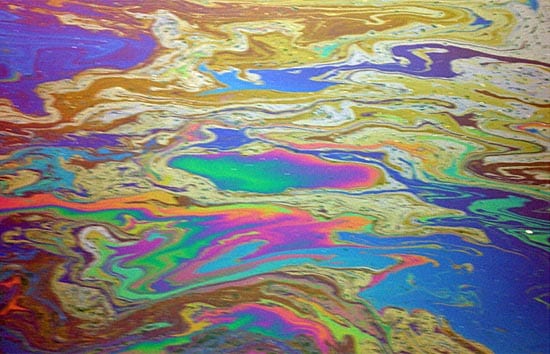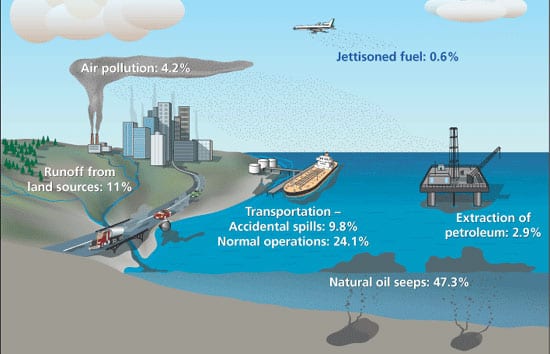That's funny because I was considering quoting Carl Sagan, "Absence of evidence is not evidence of absence."
In fact, even though BP and others with the same ax to grind can't find any of the recently-spilled oil, other investigators are finding it. In the case of any recent, sizable man-made, marine spill, oil is still being found.
Your free iron analogy is faulty. The fact that iron is required by all or virtually all living organisms, and iron chemistry conspire make that true. The same is not true for petroleum. (Note that iron is not soluble at a pH reasonable for most living things.) Iron is actively soaked-up by living things because they need it. Petroleum is soaked up by living things and it is toxic. Iron is green. Petroleum is not.
I do believe that natural organisms can break down petroleum in sea water. They can do it because the same characteristics make them adapted to "making a living" by breaking down related, natural chemicals. This does not mean that they can do it fast enough or in a way that significantly mitigates the effects of the spilled petroleum. Anyone that believes that we understand the process of the consumption or sequestering of large amounts of oceanic petroleum has their head in the oil-soaked sand. No one will know the effects of this recent Gulf spill for AT LEAST a couple of years.
In fact, even though BP and others with the same ax to grind can't find any of the recently-spilled oil, other investigators are finding it. In the case of any recent, sizable man-made, marine spill, oil is still being found.
Your free iron analogy is faulty. The fact that iron is required by all or virtually all living organisms, and iron chemistry conspire make that true. The same is not true for petroleum. (Note that iron is not soluble at a pH reasonable for most living things.) Iron is actively soaked-up by living things because they need it. Petroleum is soaked up by living things and it is toxic. Iron is green. Petroleum is not.
I do believe that natural organisms can break down petroleum in sea water. They can do it because the same characteristics make them adapted to "making a living" by breaking down related, natural chemicals. This does not mean that they can do it fast enough or in a way that significantly mitigates the effects of the spilled petroleum. Anyone that believes that we understand the process of the consumption or sequestering of large amounts of oceanic petroleum has their head in the oil-soaked sand. No one will know the effects of this recent Gulf spill for AT LEAST a couple of years.


Comment